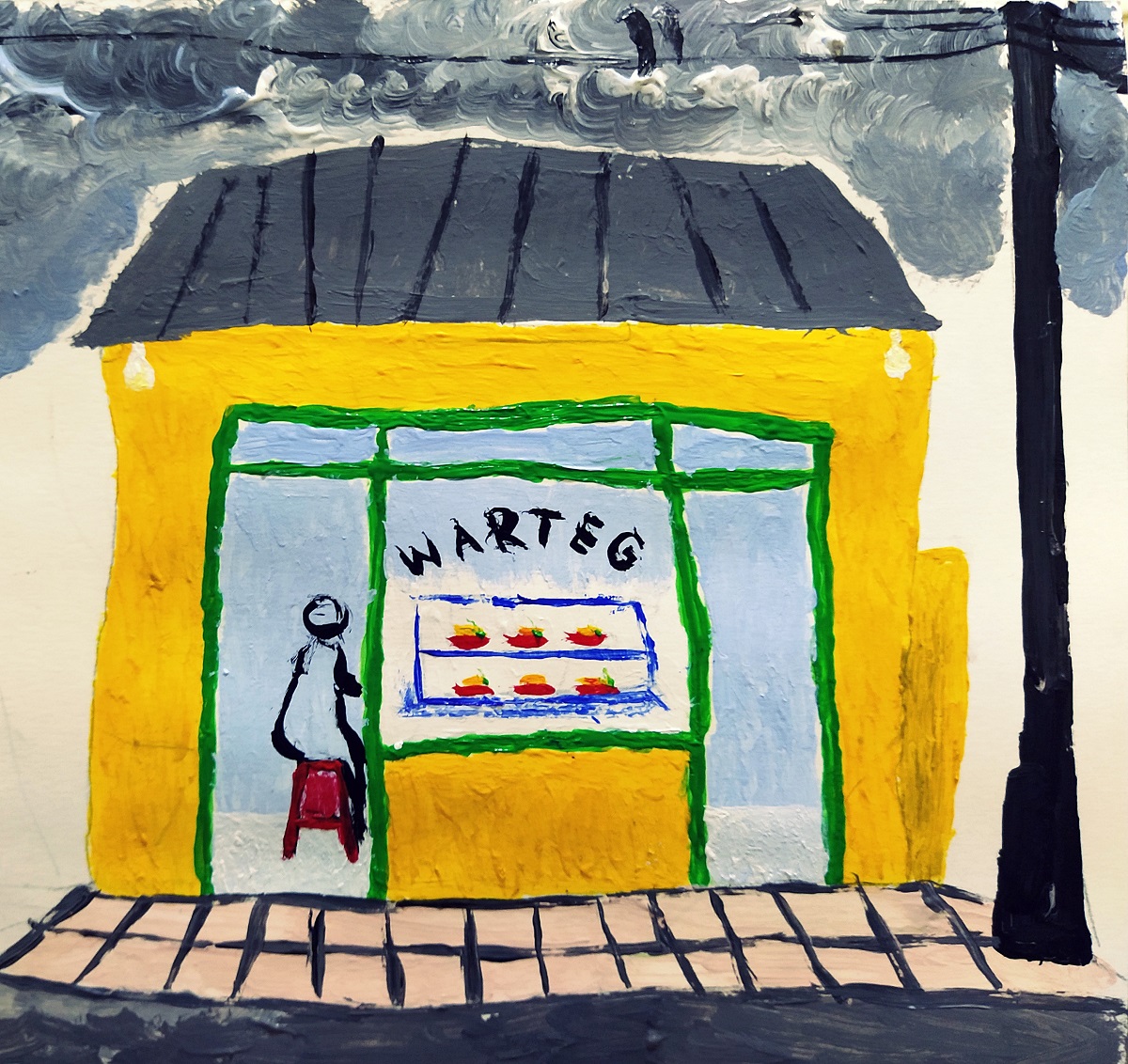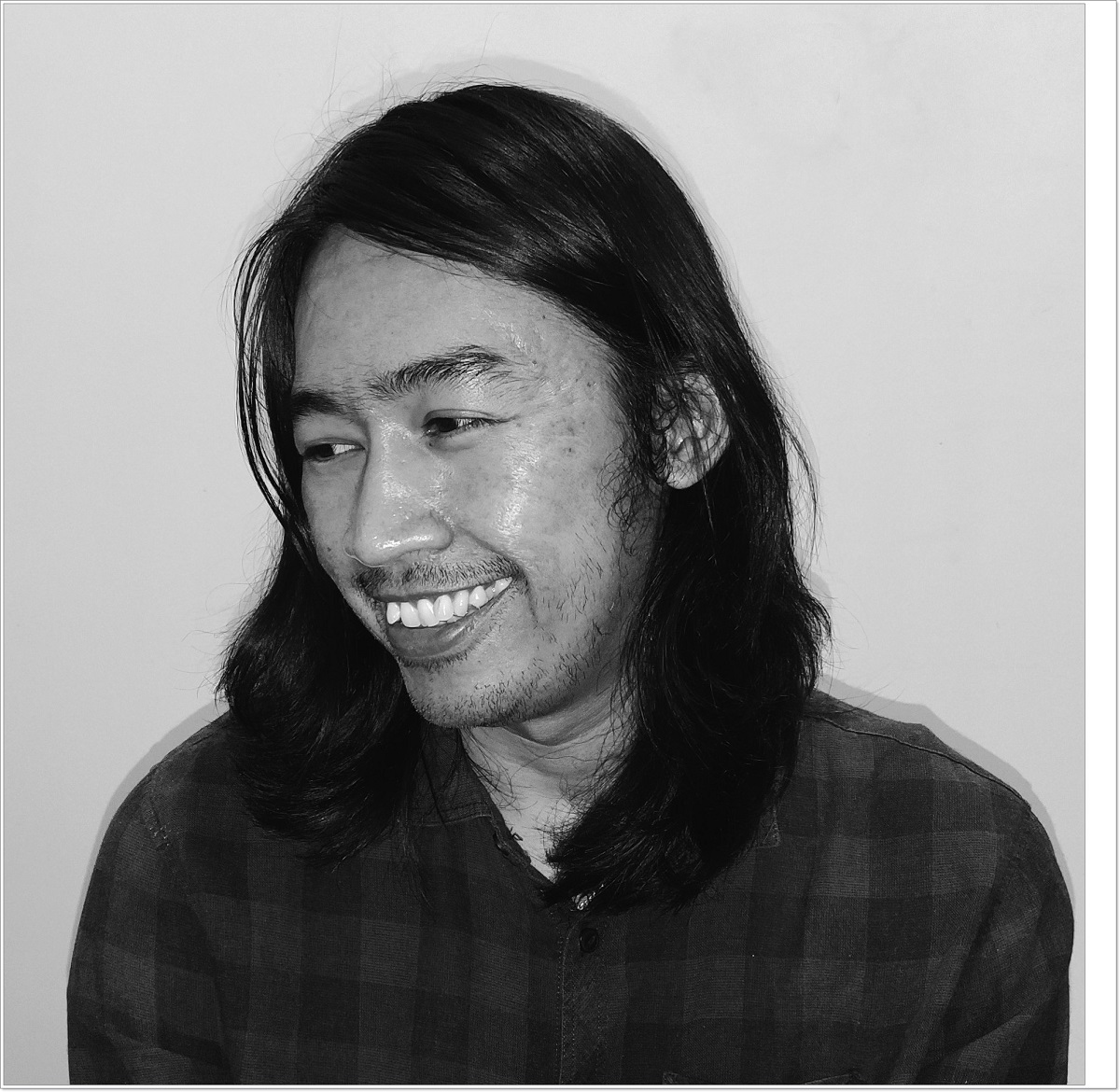Ode to my friends
I thought I was anxious when several weeks ago I was asked to write about how I maintained the glow and kept the productivity during the pandemic. That positivity question felt very elitist and snob for me. There’s no productivity. I wasn’t glowing. If any, I was depressed and struggling for life.
I live in this building of fourteen small rooms where most of the occupant worked in the nearest mall as cashier, cook, server, ticketing staff in the cinema, etc. I was a waiter myself. It was lively before. Chatters were heard every evening as we finished with our working shifts although it’s only exchanging the trivial. Nothing was really meaningful with the conversation. Today, only four people are living in the building as the rest had to go back to their village. We’ve lost our job and no vacancies left in the mall. The business was closed along with all the tenants in it. The silent we experience gives greater meaning to the small talk we had before.
It choked me when months ago one of my acquaintances told me that he has to hang on every day with rice and clear cucumber soup for his daily meal, for the next couple of weeks. That’s the only thing he could afford with several dollars he got left. I said I couldn’t help him, but maybe knowing me suffering as well could give him a little peace. He laughed about that. I thought he wasn’t really looking for help either, just sharing the misery.
On the other hand, my sister had to close her small snack shop by an elementary school as there were no students. No school, no customer, she said. She then has to work in a factory nearby our parents’ house as a person who scrubs and washes dirty rubber materials to be recycled. She gets blisters on her ever-wet hands as her working shift is nine hours a day. She gets paid $3 per shift. I felt pity for her. But she didn’t have many choices, that’s the only available oar if she wanted to survive the storm.
I think, one of my truest feelings back then was that I felt really helpless. I was mad at myself knowing that I couldn’t help much. I couldn’t get jobs and we all know we couldn’t rely on writing to pay the bills. Weeks after that I became very erratic. I was a hateful person, condemning the extravagant phrase ‘working from home’ and loathed the people who rant about their biggest problem was that they’re feeling very limited. The need to stuck in the same room, with the same person, their spouse, their lover, seems like the biggest challenge they ever received. Although their pain was valid, I was not very pleased about it. I realized maybe I was just jealous.
When I write this, I just came back from a long walk. It’s past midnight here and I wanted to see the street. I walked past a warteg—a local food stall selling steamed rice, tempeh, etc. at a very affordable price—I looked inside and saw a guy in a security staff uniform eating alone. There’s not much to eat in the stall past eight p.m. but I bet he was hungry. I stood for a moment outside the vicinity just to look at how he stared at his food, to look at his eyes and how hollow they were. He was a stern-looking guy, a brute, and I could tell he was lonely.
Passing that warteg, I bumped into a woman in hijab starting her motorbike. Probably a worker in one of the wartegs nearby, trying to get home. Again, though her lower part of the face was covered with the mask, I could see from her eyes the weariness, and what a long day she just had.
I could write about those people all the time. About my sister and her blistered hands, about a friend eating cucumber, that brute man eating alone, or a lady starting her motorbike, I could write about how tired or lonely they are—my fellow working class.
I’m sorry for rambling, after all, maybe I’m angry. And jobless.
The illustration here is a brightly-painted warteg stall with no doors. It’s acrylic on paper, that I finished just now.
Ode an meine Freund·innen
Ich dachte, ich sei verunsichert, als ich vor einigen Wochen gebeten wurde, darüber zu schreiben, wie ich während der Pandemie das Strahlen und die Produktivität aufrechterhalten habe. Diese Definitionsfrage fühlte sich für mich sehr elitär und snobistisch an. Da ist keine Produktivität. Ich habe nicht gestrahlt. Wenn überhaupt, war ich deprimiert und kämpfte ums Leben.
Ich wohne in diesem Haus mit 14 kleinen Zimmern, in dem die meisten Bewohner·innen im nächstgelegenen Einkaufszentrum etwa als Kassierer·in, Köch·in, Kellner·in, Ticketverkäufer·in im Kino gearbeitet haben. Ich selbst war Kellner. Früher war es sehr lebhaft. Jeden Abend nach unseren Schichten hörte man Geplauder – nur den Austausch von Belanglosigkeiten. Nichts war wirklich bedeutend an den Unterhaltungen. Heute leben hier nur noch vier Menschen, da die anderen zurück in ihre Dörfer mussten. Wir haben unsere Jobs verloren und im Einkaufszentrum gibt es keine mehr. Es wurde geschlossen, zusammen mit allen Geschäften darin. Die Stille, die wir erleben, gibt dem Smalltalk, den wir vorher hatten, eine größere Bedeutung.
Es erschütterte mich, als mir vor Monaten ein Bekannter erzählte, dass er für die nächsten Wochen jeden Tag mit Reis und klarer Gurkensuppe auskommen muss. Das ist das Einzige, was er sich mit seinen paar Dollar noch leisten kann. Ich sagte, ich könne ihm nicht helfen, aber vielleicht bringe es ihm ein wenig Frieden, dass ich auch leide. Darüber lachte er. Ich dachte, dass er auch nicht wirklich um Hilfe bat, sondern nur das Leid teilen wollte.
Meine Schwester musste ihren kleinen Imbiss an einer Grundschule schließen, weil es keine Schüler·innen gab. Keine Schule, keine Kund·innen, sagte sie. Sie fing in einer Fabrik in der Nähe unseres Elternhauses an, wo sie schmutzige Gummimaterialien fürs Recycling schrubbt und wäscht. Sie hat Blasen an ihren ständig nassen Händen, da ihre Arbeitsschicht neun Stunden pro Tag geht. Sie bekommt drei Dollar pro Schicht. Sie tat mir leid. Aber sie hatte nicht viele Möglichkeiten. Das ist die einzige, wenn sie den Sturm überleben will.
Ich glaube, eines meiner echtesten Gefühle damals war meine Hilflosigkeit. Ich war wütend auf mich selbst, weil ich wusste, dass ich nicht viel tun konnte. Ich fand keine Arbeit und wir alle wissen, dass wir uns nicht aufs Schreiben verlassen können, um Rechnungen zu bezahlen. Wochen später wurde ich sehr launisch. Ich war voller Hass, verdammte die extravagante Wendung „von zu Hause aus arbeiten“. Ich verabscheute die Leute, die darüber schimpfen, dass ihr größtes Problem darin besteht, dass sie sich sehr eingeschränkt fühlen. Im gleichen Raum mit der gleichen Person, Ehepartner·in, Geliebte·r, festzusitzen, scheint die größte Herausforderung jemals zu sein. Obwohl ihr Schmerz begründet war, behagte er mir nicht. Mir wurde klar, dass ich vielleicht nur eifersüchtig war.
Während ich dies schreibe, komme ich gerade von einem langen Spaziergang zurück. Es ist schon nach Mitternacht hier und ich wollte die Straße sehen. Ich kam an einem Warteg vorbei, einem Essensstand, der gedämpften Reis, Tempeh usw. zu einem guten Preis verkauft. Ich schaute hinein und sah einen Sicherheitsmann in Uniform, der alleine aß. Nach acht Uhr abends gibt es dort nicht mehr viel, aber ich wette, er war hungrig. Ich blieb einen Moment draußen stehen, nur um zu beobachten, wie er auf sein Essen starrte. Seine Augen waren hohl. Er war ein finster aussehender Kerl, ein Brutalo, und ich konnte sehen, dass er einsam war.
Als ich weiterging, begegnete ich einer Frau im Hidschab, die ihr Motorrad startete. Wahrscheinlich arbeitete sie in einem der Wartegs in der Nähe und wollte nach Hause. Obwohl der untere Teil ihres Gesichts bedeckt war, konnte ich in ihren Augen die Müdigkeit sehen und was für einen langen Tag sie gerade hinter sich hatte.
Ich könnte nur über diese Menschen schreiben. Über meine Schwester mit den Blasen an den Händen, über einen Freund, der Gurke isst, diesen brutalen Kerl, der alleine isst, oder eine Frau, die ihr Motorrad startet. Ich könnte darüber schreiben, wie müde oder einsam wir sind in der Arbeiterklasse.
Es tut mir leid, dass ich abschweife, vielleicht bin ich wütend. Und arbeitslos.
Die Illustration hier zeigt einen bunt bemalten Warteg-Stand ohne Türen. Es ist Acryl auf Papier und ich habe sie gerade erst fertiggestellt.
Übersetzung: Iris Thalhammer
Ode untuk teman-temanku
Saya pikir saya merasa gelisah ketika beberapa minggu lalu dipinta untuk menuliskan tentang bagaimana saya menjaga gelora dan produktivitas di masa pandemik. Pertanyaan positif tersebut terasa begitu elitis dan sombong. Tak ada produktivitas. Saya sama sekali tidak menggelora. Yang ada, saya merasa depresi dan begitu tertatih di kehidupan.
Saya tinggal di rumah kos dengan empat belas kamar yang para penghuninya adalah para pekerja di mal terdekat. Kasir, koki, pramusaji, pekerja bioskop, dll. Saya sendiri dulu bekerja sebagai pelayan. Biasanya obrolan terdengar tiap sore, dan tak ada yang begitu berarti dengan hal tersebut. Hari ini, tinggal empat orang tersisa. Yang lain sudah pulang ke kampungnya. Kami kehilangan pekerjaan. Mal tutup, termasuk tenan-tenannya. Sunyi yang sekarang terasa, memberikan makna pada basa-basi yang dulu ada.
Ada kabar yang mencekik ketika seorang kenalan mengabari dia harus bertahan dengan nasi dan sayur ketimun untuk beberapa minggu ke depan. Hanya itu yang mampu dia beli dengan sisa simpanan. Saya bilang saya tidak bisa membantu, tapi mungkin dengan mengetahui saya sama menderitanya, bisa membuat dia sedikit merasa baikan. Dia tertawa. Sepertinya dia tidak betul-betul mencari pertolongan, hanya berbagi penderitaaan.
Kakak saya lain lagi, dia harus menutup warung kecilnya yang nongkrong di dekat gedung sebuah sekolah dasar. Sekolah tutup, tak ada pelanggan, katanya. Dia lalu bekerja di sebuah pabrik. Bekerja sebagai penggosok potongan kabel kotor yang akan didaur ulang. Tangan basahnya melepuh karena dicelupkan ke air bersabun sembilan jam sehari untuk bayaran 45 ribu rupiah. Saya merasa kasihan, tapi dia tidak punya banyak pilihan. Itu satu-satunya dayung yang tersedia untuknya kalau dia ingin bertahan di badai ini.
Salah satu perasaan saya yang paling jujur ketika itu adalah betapa saya tidak berdaya. Saya marah pada diri sendiri karena tahu saya tidak bisa menolong. Begitu sulit mendapatkan pekerjaan, dan menulis tidak bisa diandalkan untuk membayar tagihan. Minggu setelahnya saya begitu risau dan tidak terkontrol. Saya menjadi seorang pembenci, mengutuki frasa extravagant “bekerja dari rumah” dan mencemooh orang yang menggembar-gemborkan masalah terbesar mereka adalah merasa dibatasi. Keharusan untuk terjebak di satu tempat sepertinya adalah tantangan terbesar yang pernah mereka terima. Meski tentu saja penderitaan mereka valid, saya merasa tidak senang. Saya sadar mungkin saya cemburu.
Ketika menulis ini, saya baru saja balik dari berjalan kaki. Sudah tengah malam dan saya ingin melihat-lihat sekitar. Saya melewati sebuah warteg dan melongok ke dalam. Ada seorang lelaki berseragam satpam makan sendirian. Tidak ada banyak pilihan makanan selewat pukul delapan tapi saya pikir dia pasti lapar. Saya berdiri di luar warteg sebentar, hanya untuk melihat bagaimana dia memandangi makanannya. Saya ingin melihat matanya, melihat begitu kosong di sana. Wajahnya tegas, badannya besar, dan saya tahu dia kesepian. Melewati warteg, saya berpapasan dengan seorang wanita berjilbab yang menghidupkan motornya. Mungkin dia pekerja di salah satu warteg dekat sini, berniat pulang. Lagi-lagi, meski bagian bawah wajahnya tertutup masker, di matanya saya melihat penat, dan betapa panjang hari yang baru dia lalui.
Saya bisa menulis tentang orang-orang itu sampai kapan pun. Tentang kakak saya dan tangannya yang melepuh, tentang teman yang makan mentimun, lelaki berbadan besar yang makan sendirian, atau wanita yang menghidupkan motornya, saya bisa menuliskan betapa lelah atau kesepiannya mereka—teman-teman kelas pekerja saya.
Saya mohon maaf karena merepet, lagipula, mungkin saya marah. Dan menganggur.
Ilustrasi ini adalah bangunan warteg tak berpintu yang dicat cerah. Cat akrilik di kertas, yang saya selesaikan baru saja.
(Diterjemahkan dari bahasa Inggris oleh penulis)
Teilen












